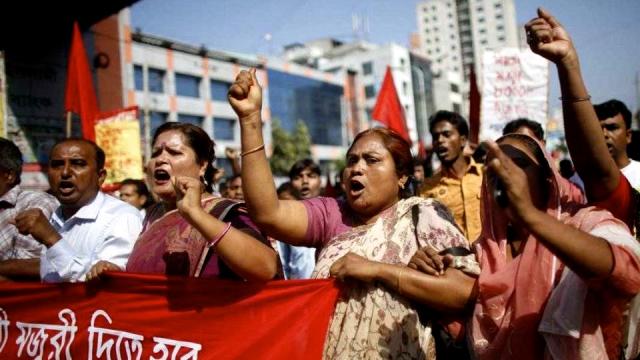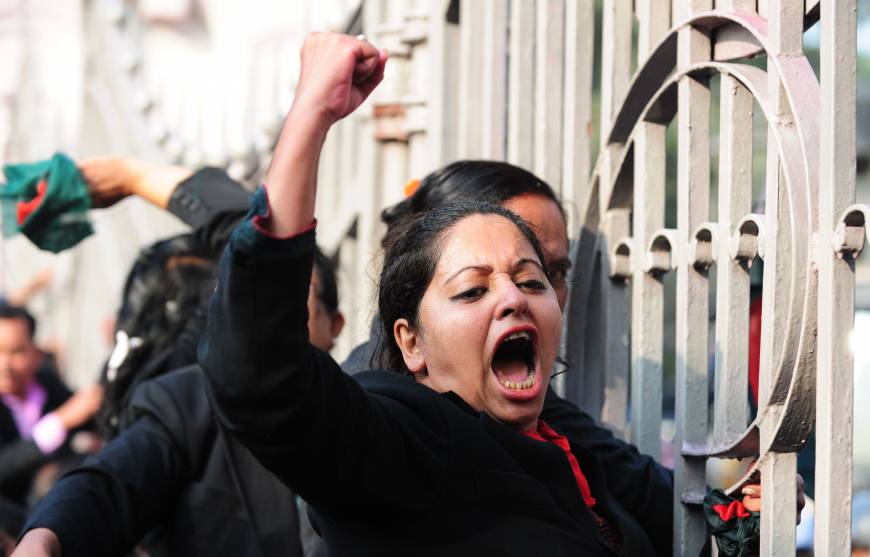
Violent clashes erupted in Bangladesh as opposition supporters took to the streets to protest against the general election next Sunday, which they are boycotting.
One person was killed as thousands of police took to the streets to try to foil the opposition rally. The leader of the main opposition Bangladesh Nationalist party (BNP), Khaleda Zia, was prevented from leaving her home to attend the demonstration.
"The government is undemocratic and illegal. It should step down immediately," Zia said in front of her home. She said the "march for democracy" would continue on Monday.
The opposition says it will not take part in the vote on January 5 unless an interim government oversees it and the prime minister, Sheikh Hasina, steps down. The boycott means more than half of the 300 parliament seats will go uncontested, undermining the legitimacy of the election and making it highly unlikely that it will do anything to restore stability in one of the world's poorest countries.
Opposition party officials say hundreds of their supporters have been detained across the country in recent days, and Dhaka is virtually cut off as authorities have suspended bus, rail and ferry services into the city.
Violence has gripped the country as Hasina and her ruling Awami League press ahead with the vote. Police said a 21-year-old student was killed in the Malibagh area of Dhaka when security officials fired rubber bullets to disperse the activists. Local media reported that more than 650 people had been detained since Friday as part of a nationwide crackdown.
More than 150 people have died in political violence in Bangladesh since the crisis intensified in October. The conflict pits an opposition alliance led by Zia's BNP against Hasina, who accuses Zia of protecting people being tried or convicted of war crimes involving the nation's 1971 independence war against Pakistan.
Jamaat-e-Islami, the main partner of Zia's party, wants the government to halt the war crimes trials of its leaders. Zia says the trials initiated by Hasina are politically motivated to weaken the opposition, an allegation the government has denied. Jamaat-e-Islami is banned from taking part in the election.
Dhaka's Daily Star newspaper said in an editorial on Sunday: "Too much blood has been spilled in these past many weeks. We demand a stop to such bloodletting."
Businesses have expressed concern, saying the conflict is affecting progress in the manufacturing sector, including a burgeoning garment industry that earns more than £12bn a year from exports.
Hasina and Khaleda, both related to former national leaders, have dominated politics in Bangladesh for more than two decades. The antagonism between them has frustrated attempts at reconciliation.
3 WAYS TO SHOW YOUR SUPPORT
- Log in to post comments













